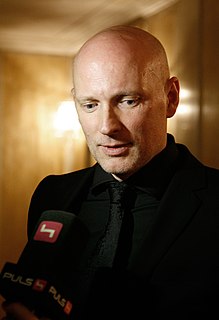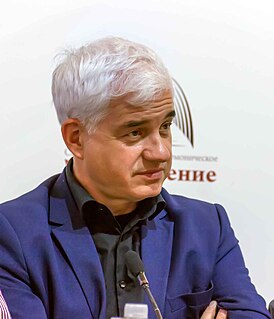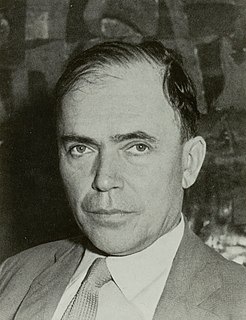Related Research Articles

Chemnitz is the third largest city in the German federal state of Saxony after Leipzig and Dresden. It is the 28th largest city of Germany as well as the fourth largest city in the area of former East Germany after (East) Berlin, Leipzig and Dresden. The city is part of the Central German Metropolitan Region, and lies in the middle of a string of cities sitting in the densely populated northern foreland of the Elster and Ore Mountains, stretching from Plauen in the southwest via Zwickau, Chemnitz and Freiberg to Dresden in the northeast.
Harry Alfred Robert Kupfer was a German opera director and academic. A long-time director at the Komische Oper Berlin, he worked at major opera houses and at festivals internationally. Trained by Walter Felsenstein, he worked in the tradition of realistic directing. At the Bayreuth Festival, he staged Wagner's Der fliegende Holländer in 1978 and Der Ring des Nibelungen in 1988. At the Salzburg Festival, he directed the premiere of Penderecki's Die schwarze Maske in 1986 and Der Rosenkavalier by Richard Strauss in 2014.
Nicolas Stemann is a German theatre director. He is best known for directing the 2002 stage production of Hamlet at Schauspiel Hannover, a theatre in Hanover.

Viktor de Kowa was a German stage and film actor, chanson singer, director, narrator, and comic poet.
Axel Köhler is a German countertenor and opera director. In 1994, he won the Handel Prize. Since 2009, he has been Artistic Director of the Halle Opera House.

Alvis Hermanis is a Latvian theatre director, set designer and actor. Since 1997 he works at the New Riga Theatre. Hermanis was one of the establishers of the theatre in 1992 and since 1997 has worked as the artistic director of the theatre. His style of direction is often associated with postdramatic theatre.

Hans-Joachim Frey is a German cultural manager. From 1997 to 2007, he was Artistic Director of Operations and Director of Opera at the Semperoper in Dresden from 2007 to 2010 and general director at the Theater Bremen. In January 2013 he was responsible in the European Capital of Culture in Linz as a board director and artistic director of Liva, where he was also on the Bruckner House, the International Bruckner Festival and the clouds of sound.
Aleksandar Denić is a Serbian stage designer and film production designer. He is known as a scenographer of feature films, as well as for his work at major theatres including Berlin, Hamburg, Stuttgart, Bayreuth, Paris, Zurich, Wien, Salzburg, Köln and Munich.
Marco Arturo Marelli is a Swiss set designer and stage director who has worked at European opera houses for opera and ballet. He designed sets for ballets by John Neumeier, and for premieres of the operas Thomas Chatterton by Matthias Pintscher at the Semperoper in Dresden (1998) and Medea by Aribert Reimann at the Vienna State Opera (2010).

Oscar Fritz Schuh was a German-Austrian opera director, theatre director and opera manager. He is known for directing Mozart operas at the Vienna State Opera and the Salzburg Festival in productions that toured internationally. They focused on the psychology of the characters.

Peter Palitzsch was a German theatre director. He worked with Bertolt Brecht in his Berliner Ensemble from the beginning in 1949, and was in demand internationally as a representative of Brecht's ideas. He was a theatre manager at the Staatstheater Stuttgart and the Schauspiel Frankfurt. Many of his productions were invited to the Berliner Theatertreffen festival. He worked internationally from 1980.
Philipp Kochheim is a German theatre director, author and scenic designer. He also wrote the libretto for the opera Kniefall von Warschau named after Willy Brandt's genuflexion in Warsaw on 7 December 1970, with music by Gerhard Rosenfeld), which premiered in 1997 in the Opernhaus Dortmund, directed by John Dew.

Ita Maximowna was a Russian-German scenic designer, costume designer and illustrator. She was one of the first women in the professions in Germany who worked internationally. Trained as a painter, she came to the theatre late, after World War II in Berlin, and became a scenic designer first in theatres of the city, then internationally both for plays and opera, and in collaboration with directors such as a Günther Rennert and conductors such as Herbert von Karajan.
Katrin Lea Tag is a German scenic and costume designer for drama and opera, whose works have appeared internationally. In 2020, she was named Scenic Designer of the Year by Opernwelt, for productions such as Barrie Kosky's Salome for the Oper Frankfurt.

Die Schutzbefohlenen, is a play by Elfriede Jelinek written in 2013. She termed it a Sprachkunstwerk, a language artwork. It deals critically with the politics at the time concerning refugees. The play was first read in Hamburg on 21 September 2013. The first scenic production was in Mannheim on 23 May 2014. The first production in Austria was staged at the Burgtheater in Vienna on 28 March 2015, which was recognised internationally. Later that year, Jelinek expanded the text to reflect the changed political situation.

Michael Thalheimer is a German theatre director.

Hans Otto was a German stage actor. He came to prominence at a relatively young age. From the world of theatre, one of the greatest admirers of his talents, on and off the stage, was Bertolt Brecht. Towards the end of 1933 he was killed - most surviving sources use the verb "murdered" - by "Nazi paramilitaries", becoming one of the Hitler government's first victims from the world of the arts. At the time of his killing he had been a member of the Communist Party for almost ten years.
Bernhard Helmich is a German theatre manager.

Claus Guth is a German theatre director, focused on opera. He has directed operas at major houses and festivals, including world premieres such as works of the Munich Biennale, and Berio's Cronaca del luogo at the Salzburg Festival in 1999. Guth is particularly known for his opera productions of the works of Richard Wagner and Richard Strauss. He has received two Faust awards, for Daphne by Richard Strauss in 2010, and for Debussy's Pelléas et Mélisande, both at the Oper Frankfurt.
Hasko Weber is a German actor and theatre director.
References
- 1 2 3 4 "Olaf Altmann". staatsschauspiel-dresden.de (in German). Retrieved 29 October 2020.
- ↑ Olaf Altmann on Der Spiegel (in German)